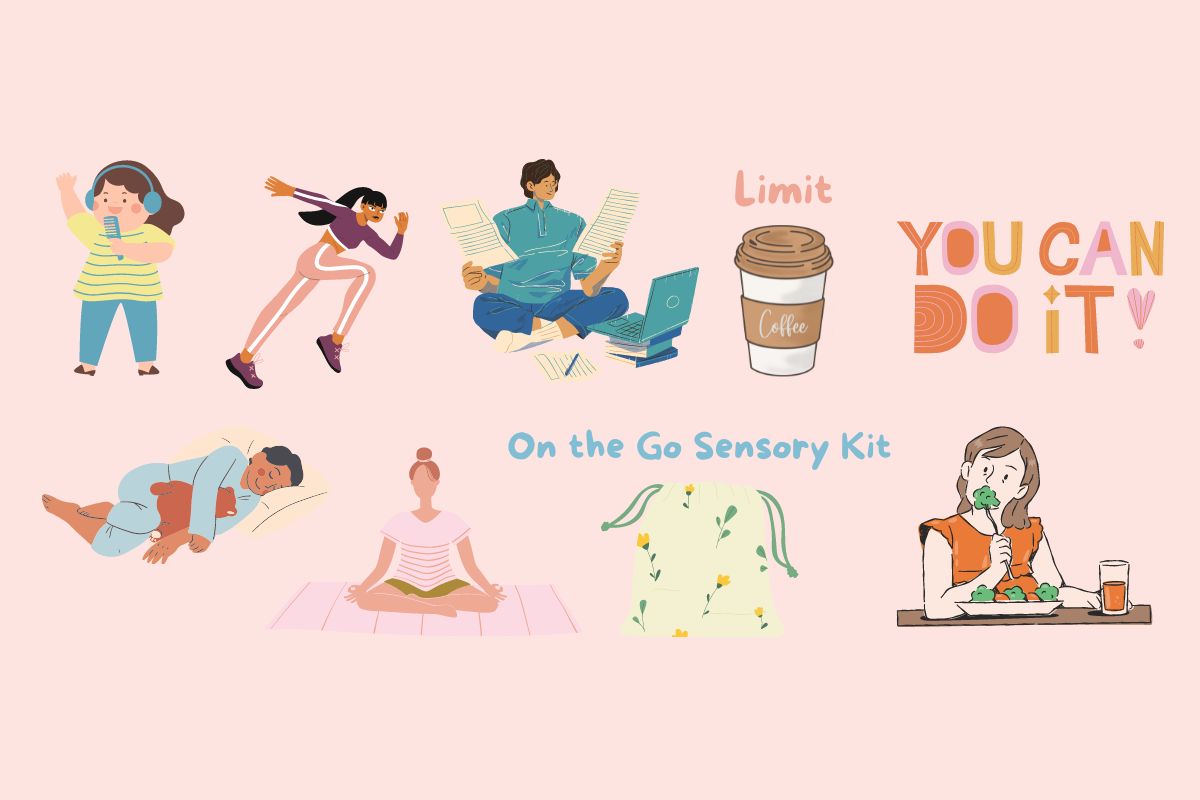Using strategies such as making a Sensory Toolkit and establishing a Low Anxiety Desk Space can help calm anxiety and stress while preparing for a test, but what about day-of test anxiety?
How can you best care for yourself when your body enters fight/flight/freeze mode before an exam and what are realistic ways to lower anxiety both immediately before and during an exam?
Here are some steps that help me stay calm and collected as I get ready on the day of a test and while I am taking a test.
Step 1: Get enough sleep!
You'd be surprised how much better our brains function and recall information when we have an adequate amount of sleep. Sleep helps consolidate our learning and is a vital step in studying!
Step 2: Eat a solid meal with protein.
Instead of, or in addition to, that tempting iced coffee in the morning, make sure to have a hearty breakfast with protein that provides needed energy for the body. And make sure to drink water!
Lowering the amount of physical stress your body is under by providing it with adequate sleep and food can help lower overall anxiety levels.
Step 3: Avoid loads of caffeine.
We understand that some caffeine and sugar can be unavoidable before an exam, but excess amounts may lead to feeling jittery and even more anxious.
Step 4: Consider starting your morning time before the exam with a mindfulness meditation, a quick bit of exercise, a mini dance party, etc.
Setting the tone for the day can be a great way to train your body that today is not a day to be anxious over, rather it is a day to be centered and relaxed.
Step 5: Study your cheat sheet one last time.
Give yourself a quick refresher on the material, but then put it away. Remind yourself that you spent time studying and are prepared for the test.
Step 6: Write down a reaffirming message that you believe.
Some examples are:
"I typically do well on my exams, and this exam is no different".
"If I don't do well, there will be more opportunities to improve my grade in the future".
Step 7: End your morning time with a calming but arousing activity like a short bit of exercise, dancing in your room, singing to a couple favorite songs, etc.
This will help you center yourself before the exam and distract your body from any internal sensations of anxiety.
Step 8: Use the tools you found most helpful from your Sensory Kit on the Go while walking or commuting to the exam.
Examples include using earplugs, headphones, calming music, essential oils, a stress ball, etc.
Step 9: Once you arrive at the exam, take out any calming tools you are able to use during the test.
Examples include a fidget ring, piece of gum, a hair tie to fidget with, a small grounding object in your pocket, earplugs, etc.
*Be sure to check with your school's and teacher's rules about what you can have out during a test and explain the purpose of your calming tools if there are any questions.
Step 10: Do your best and try to remember that this is just ONE exam! You are much more than any one grade.
Good luck!
